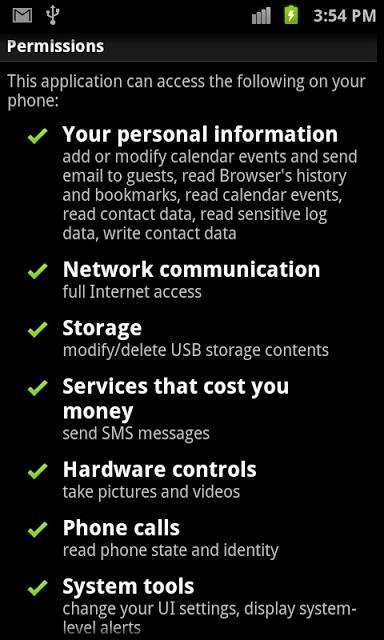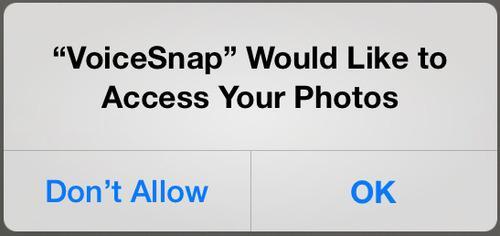Every time you install an Android app, you’re asked to OK the app’s access to certain parts of your phone. You might see this, for example:

This week, reader Maureen noted that these apps seemed to be overreaching just a tad. Why, for example, would The Weather Channel app need access to your Device and Call information? Why would it need to know if WiFi is enabled and the names of all nearby WiFi devices?
You may recall that Facebook encountered a bit of public pushback on this same issue when it released its Messenger app a few weeks ago. To install it, you had to give it permission to access your entire address book, send text messages, record videos using your camera, know your location at all times, and access the Internet when it wants. Everybody accused Facebook of getting greedy with its data harvesting.
As it turns out, all apps seem to ask for a lot of permissions, and most of it sounds a lot scarier than it is. If you’re an app developer for Android, Google says you must declare what parts of your phone your app can use — and you must use Google’s wording.
So Facebook had to use text that says, “Has access to your phone,” even though what it really means is “…if you try to call someone from within the Messenger app.” It had to use text that says, “Can access your camera,” when what it really meant was “…when you take a photo to send to a friend.”
I wrote to The Weather Channel to ask about its permissions, and a spokesperson told me the same kinds of things: Why does it need access to your phone? So that the app can make severe weather alerts pop onto the screen. Why does it need to know about nearby WiFi networks? Because Android phones use WiFi to help them figure out where you are — and The Weather Channel app needs to know where you are so it can give you local weather forecasts.
Google recently updated the way it displays permissions, making them cleaner and a little less scary. But if you ask me, the iPhone’s method is better yet. It asks you for access to some part of your phone only at the moment when it needs access.

In any case, it’s ironic that Google runs into public-perception problems with these permissions screens, because the whole idea was to shine as a beacon of transparency and openness — not to scare people with overly broad wording.

0 comments:
Post a Comment